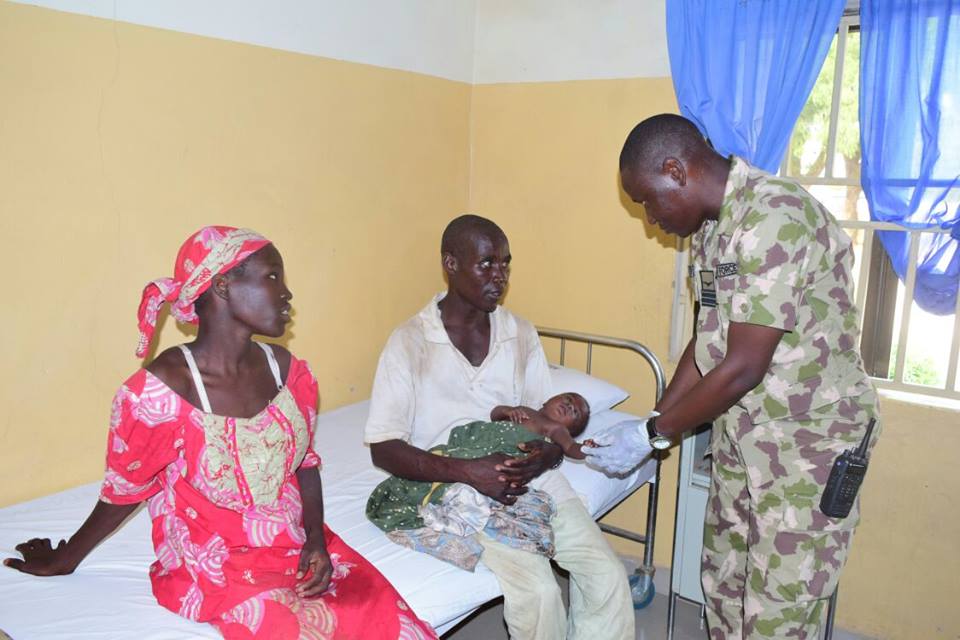By Edward T. Dibiana
The massive church auditorium of a popular Pentecostal church in Utako area of Abuja, buzzed with activities, recently. Curiously, it was not essentially, a religious gathering. The crowd, which comprised youths and women, sat in groups of about 50 each. With pronounced concentration, they engaged themselves in various tasks that underscored the value they attached to the programme.
The event was a one-month Skill Acquisition Programme, organized by the church to impact the lives of this category of its members and others in the environ. Participants received trainings in different fields, such as: hat making, decoration and event management, catering, bead making, soap making, make-up artistry, photography and cinematography, phone repair, electrical installation, barbing, among others. Lectures were also given on entrepreneurship, as part of the package.
The training cost was written off by the church, apparently, as part of its social responsibility, because they might have reasoned that it was not enough for a pastor to continue telling the congregation “it is well with you”, when many of them bore the brunt of hunger and unemployment.
Although a number of the participants had university education, some had only basic education. But in this era of crippling unemployment, it was rightly considered that acquiring skills in any of the fields, coupled with entrepreneurial knowledge, would open opportunities for the participants to either become small business owners, or even become employable in the Small and Medium Enterprise (SME) sector of the economy.
Advertisement
A similar programme, with remarkable success, had been implemented a few years ago, by a non-governmental organization promoted by Hon. Victor Ogene, in Ogbaru Federal Constituency, of Anambra state. Ogene represented Ogbaru at the House of Representatives, in the last assembly. Over 350 youths benefited from the skill acquisition and grassroots job creation scheme.
I was privileged to be part of the team that designed the programme. The enthusiasm exhibited by the participants in course of the exercise and the feedback, were simply, amazing.
It is in fact, gratifying to learn that many of the beneficiaries are currently doing well in their chosen fields. For instance, a young lady, who received catering training at the programme is now a valued caterer in her locality. She currently has three employees in her outfit.
Advertisement
An encounter with a proud beneficiary of a similar skill acquisition by another private organization, was not only revealing but insightful. Boldly written on a sign post in front of his office in a popular shopping complex in Abuja, is: “Engineer Amos Phone Repairs”. The stream of clients waiting for his service, was only indicative of his mastery of the phone repair business.
In one of the sessions, a young micro finance marketer showed up and Amos effortlessly handed over the sum of N4, 000 to her – a daily savings contribution, as was later understood. That was most likely only a part of his daily earnings. Two young boys, also work under him.
Such profitable skills would no doubt be vital tools for addressing youth unemployment in the nation.
It has therefore been rightly argued that if private organizations are adding value to the lives of the youths through skill acquisition schemes, government should be in the driving seat for such job creation initiative.
Advertisement
This is the more reason it is always disheartening to many, when some political office holders do not think beyond distribution of okada (motor cycles) or Keke (tricycle), when they embark on “youth empowerment”. Some even donate snooker boards to youths in their communities in the name of youth empowerment.
Many have argued that for youth empowerment to be meaningful, it should essentially add value to the wellbeing of the beneficiaries, who will in turn, be useful to the society. An idle, snooker-playing youth, with no identifiable skill or visible means of livelihood, will most likely become vulnerable to negative tendencies and may constitute a threat to the society.
This reinforces the argument that job creation is pivotal to the success of any government that has the agenda of wealth creation, social security for its citizens and importantly, the internal security of the nation.
Such engagement, it has been rightly noted, serves as a proactive means of addressing insurgency, militancy and other forms of restiveness among the citizenry, especially the youth population.
Advertisement
A careful survey would certainly reveal that perpetrators of terrorism in the Northeast, militancy in the Niger Delta region, kidnapping and arm robbery across the nation, are mostly youths.
Such disturbing realization, makes it incumbent on government to adopt practical, creative ways of ensuring that the youth population are positively engaged in activities that would insulate them from vulnerability to crime and other social vices.
Advertisement
Realistically, not everybody would benefit from government employment, as such opportunities are scarce and expectedly, competitive. But it is the right of every citizen to sustainably earn a living in a country of his nationality.
In the absence of any social welfare programme in Nigeria, or the ambiguous proposed N5,000 monthly palliative package to the very poor, by the federal government coming handy, a short term skill acquisition programme, would no doubt be more profitable to both the beneficiaries and the government. The self-reliance and the value chain gains of this programme, in the overall peace and prosperity of the nation, cannot be quantified in monetary terms.
Advertisement
But the problem with government in handling such a programme, is often the usual frustrating bottlenecks of government bureaucracy. Bogus budgeting, over centralization and the general absence of transparency are also factors that could hinder a smooth nation-wide implementation.
However, if a relevant government agency such as the National Directorate of Employment (NDE), is given a marching order, with the necessary budgetary backing, using the 774 local government areas as units for the training programme, the possibility of success would be high.
Advertisement
For instance, if 2000 youths are trained in 774 local government areas in Nigeria in one year, in four years of consistent implementation of this programme, over five million jobs would have been created. The multiplier effect of that on the economy can only be imagined.
While people in some quarters might argue that funding would be a challenge for the implementation of a wide-spread project like that, it should be noted that the proposed N500b for palliative would go a long way. Even relevant international donor agencies would most likely buy into the programme. All that these donor agencies need, is transparency that would ensure that their money is not diverted to other non-people-oriented projects.
Dibiana is a journalist and creative writer.
Views expressed by contributors are strictly personal and not of TheCable.
Add a comment






